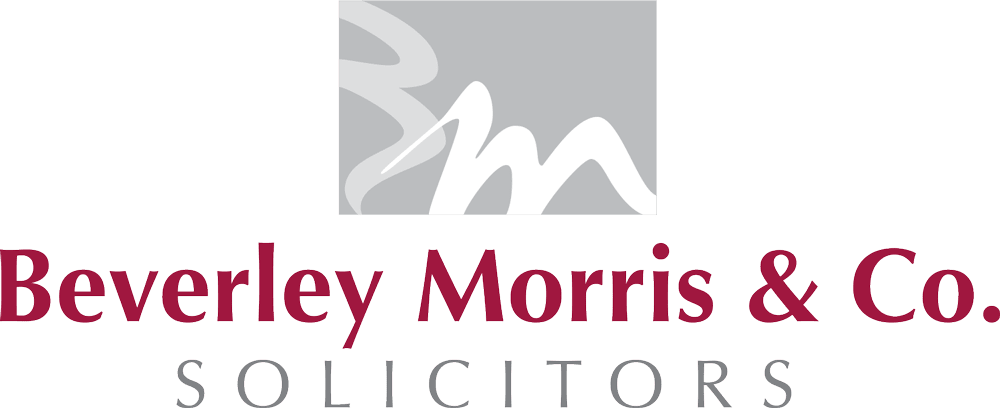Beverley Morris & Co. Solicitors were proud to support this year’s National Conveyancing Week (NCW) which aimed to improve the profile of conveyancers and the valuable role they play in the home-moving process.
What is National Conveyancing Week?
Following the success of the inaugural NCW in March 2023, this year’s event which took place in March 2024 was designed to educate and reassure the public, recruit new entrants and improve the profile of conveyancers and conveyancing.
An experienced conveyancer oversees the house-moving process, ensuring that any hiccups are dealt with promptly and efficiently.
From our offices in Blackheath Village, our specialist residential property solicitors at Beverley Morris & Co. provide reliable and cost-effective legal advice to individuals and businesses across London and the South East.
If you are buying or selling a property, contact our Residential Conveyancing team by calling 020 8852 4433 or emailing enquiries@beverleymorris.co.uk.
Conveyancing is far more challenging these days than it has ever been. In contrast, there have been technological advances to improve efficiency, increase productivity and streamline workflow.
NCW aims to change the perception of conveyancing and encourage a change in attitude by users of the industry.
For more information about National Conveyancing Week, click here.
Glossary of Conveyancing Terms
To mark NCW 2024, our specialist residential conveyancing solicitors have provided a glossary of some of the common terms used in the conveyancing process.
Conveyancing: The legal process for buying or selling property or land.
Freehold: A freehold property is where you own the land beneath the property and the sky immediately above it as well as the property itself. Most houses are freehold.
Leasehold: A leasehold property is where you own the property but not the land it sits on. Most flats and maisonettes are leasehold. For leasehold properties, you own the property for the length of your lease. However, when the lease ends, ownership returns to the landlord.
Contract: The written legal agreement between the seller and the buyer setting out the terms agreed between the parties and the consequences of either party not fulfilling them.
Form TA6 (Property Information Form): A seller must complete a Property Information Form to provide their buyer with more information about the property. The seller’s replies include amongst other things details of the boundaries that belong to the property and who is responsible for maintaining them, information about planning applications affecting the property, whether the property is sold with the benefit of any guarantees, electrical certificates and so on and the names of the current utility suppliers.
Form TA7 (Leasehold Information Form): The seller of a leasehold property completes this form in addition to Form TA6. The TA7 Leasehold Information Form includes details of the building insurance, ground rent, service charge and other aspects regarding the leasehold.
Form TA10 (Fittings and Contents Form): This standard form is completed by the seller. It confirms what items are staying at the property and are included in the sale price such as white goods, blinds and light fittings, what items the seller plans to remove from the property and what items may be purchased by the buyer at an additional cost.
Exchange of Contracts: This is the point at which there is a legally binding contract between the seller and the buyer. Up until this point, either party may change their mind. For example, the seller may decide not to move or the buyer may find another property they prefer. Neither party may claim from the other any expenses they have incurred if the transaction fails to proceed and contracts are not exchanged. NB. This could result in the party who has been let down incurring search fees, survey fees and legal fees they cannot recover.
Deposit: An agreed amount (usually ten per cent of the purchase price) to be paid by the buyer to the seller on exchange of contracts.
Completion: This is the point when the seller’s solicitor receives the balance of the purchase money and the buyer is entitled to the keys to the property.
Covenant: Another word for a “covenant” is a “promise” either to do something or not to do something. It is a legal obligation contained within the title deeds to a property that the owner of the property must adhere to. A covenant not to do something is called ‘a restrictive covenant’. It will limit what you can do to the property, eg. a restriction on making certain renovations, building an additional structure or carrying on a business at the premises. Restrictive covenants ‘run with the land’ which means that they are passed onto future owners.
Easement: A right exercised over another person’s property. Easements generally allow a property owner to utilise another person’s land in a specific way, for example, by allowing them to make use of drainage pipes or electricity or telecommunication cables that pass over or beneath a neighbouring owner’s land.
Indemnity policy: Indemnity insurance can protect you against a legal defect that either cannot be resolved or would be too time consuming and/or costly to resolve. For example, if your seller cannot provide a building regulations certificate, your solicitor will require your seller to purchase indemnity insurance to deal with the possibility that the local authority might try to pursue a claim against you in the future.
Certificate of compliance: This can sometimes be required when buying a leasehold property. If the freeholder has placed a restriction on the leasehold title, the Land Registry will require a certificate of compliance from the freeholder stating that the buyer has complied with the restriction before they will register the buyer’s purchase.
Flying freehold: This is when a freehold property is built partly across the adjoining property and the property owner does not own the rest of the adjoining property or the land beneath it. Flying freeholds can cause added complications in conveyancing.
Land Registry: HM Land Registry is a government organisation that maintains a register of properties and their ownership in England and Wales.
Lender: A bank, building society, or other individual(s) or company that lends money to a buyer to purchase a property.
Mortgage term: The length of time agreed with the lender for the repayment of a mortgage.
Registration: During the final stages of the conveyancing process, your conveyancer will register your property in your name at HM Land Registry.
Searches: A series of enquiries undertaken by a conveyancer to find out more information about a property. Searches highlight any issues that are a problem with the property at the time of purchase or could become an issue later on. Conveyancers do three main types of searches as part of the conveyancing process: a local authority search, an environmental search and a water and drainage search. In certain areas, eg. a mining area or a flood risk area, additional searches may be required to be carried out.
Stamp Duty Land Tax: SDLT (also known simply as “stamp duty”) is a government tax payable on the purchase of a property above a certain purchase price. Click here for more information.
Title deeds: Title deeds as we used to know them, to prove ownership of a property, no longer exist. All that is required nowadays to prove ownership of a property is an official Land Registry copy of the title. Sometimes, old title deeds and documents still exist but they are of historic interest and value only and they are no longer needed to prove ownership of a property. Houses used to be sold by a developer with a 999 year lease (sometimes referred to as “a virtual freehold”) and if the lease still exists amongst some old paperwork, it will often show the exact measurements of the plot and contain inward “T” marks proving which boundaries belong to the property. It was not until the early 1970’s that the owners of these properties became entitled to buy their freehold.
Conveyancing Solicitors Blackheath
Buying a new house, flat or maisonette is an exciting time, but for a property sale or purchase to go smoothly, it is crucial that you enlist the help of an experienced residential property solicitor.
At Beverley Morris & Co., our dedicated team of conveyancing solicitors is very experienced in helping a wide range of people complete their dream move.
At Beverley Morris & Co., we offer a range of residential property services for individuals and businesses. Over the years, we have advised many different people in relation to their residential conveyancing transactions, including:
- Homeowners.
- Private investors.
- Developers.
- Trustees.
We have helped many different people successfully complete their property sales and purchases and can provide clear, sensible and cost-effective specialist legal advice on every aspect of the conveyancing process.
Whether you are buying a property for the first time, moving house or are an experienced property investor or developer, we will provide a personalised service designed to fit your needs, supporting you every step of the way.
To speak to our Residential Conveyancing team today, call 020 8852 4433 or email enquiries@beverleymorris.co.uk.

